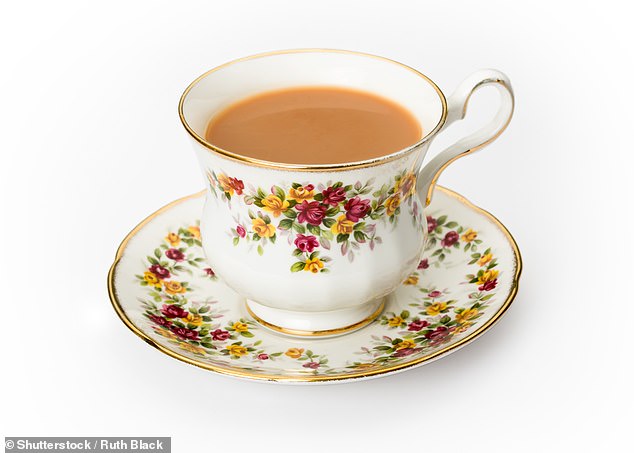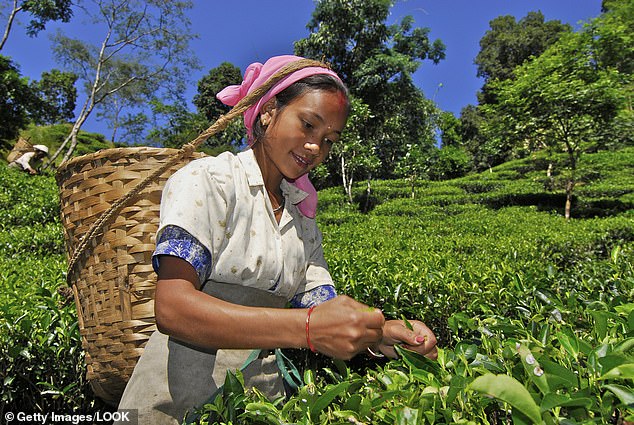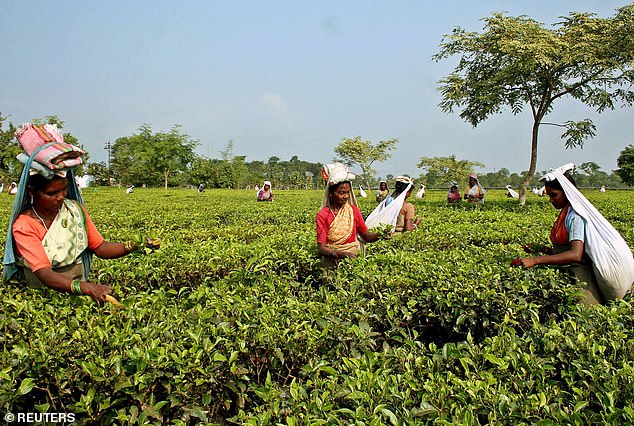Extreme weather in India’s main tea-growing region has disrupted the annual harvest, while fears are growing over a rising price for the humble cup.
According to the Tea Board of India, the average price of Indian tea leaves is currently £2 per kg, almost 20 per cent higher than last year, due to heatwaves and floods.
The Indian government’s ban on 20 pesticides has further affected production in areas such as Assam, which accounts for more than half of the country’s tea production.
Prabhat Bezboruah, a leading planter and former chairman of the Tea Board, said: The times“Extreme weather events are affecting tea production. Excessive heat in May, followed by floods in Assam, are reducing output.”
Britons drink an average of 100 million cups of tea a day, or around 36 billion a year, making the country India’s top tea export destination.
According to the Tea Board of India, the average price of Indian tea leaves is currently £2 per kg, up almost 20 per cent from last year, having been boosted by heatwaves and floods (Pictured: Indian workers pick tea leaves at the Dhagapur tea plantation on the outskirts of the north-east Indian city of Siliguri)

Britons drink an average of 100 million cups of tea a day, or around 36 billion a year, making the country India’s top tea export destination (file image)
This year, India is expected to export around 100 million kilograms of the commodity, a seven per cent drop compared to the record 1.394 billion kilograms it produced last year.
Mr Bezboruah predicts that the above-mentioned problems will push up the wholesale price of tea by 16 to 20 percent this year, as more than half of India’s tea leaves are harvested between July and October.
Currently in the UK, the average price of a pack of 80 tea bags is £2.64, up 11 per cent from £2.37 last year, according to the Office for National Statistics.
Future price increases will depend on how much manufacturers and retailers are willing to bear the higher costs, as well as the remaining time on existing supermarket tea supply contracts.
Heavy monsoon rains have caused problems across India, including in cities like Delhi.
Tea production in the country fell by more than 30 percent in May compared to the same period last year after a heatwave left tea pickers struggling to collect the leaves.
During that month in 2024, India produced only 91 million kilograms of tea, the lowest amount produced during that month in more than a decade.
Apart from the Irish and the Turks, the British drink more tea than any other nationality in the world.

Mr Bezboruah predicts that the wholesale price of tea will rise by 16 to 20 percent this year due to the above-mentioned problems (pictured: Woman picking tea at Makaibari tea plantation, Darjeeling, West Bengal, India)
In recent years, tea tastes in this country have changed: the consumption of herbal teas has increased, while the popularity of the classic English breakfast has been declining.
Britons spent more on herbal teas than traditional tea for the first time last year, according to market research firm Kantar.
Independent research suggests that today, given the choice, most people would prefer an herbal tea.
For lovers of the classic, quick-brew tea, the good news is that the price of milk is coming down.
According to the ONS, the cost of whole milk has fallen by six per cent over the past year, but the cost of sugar has risen by eight per cent.


